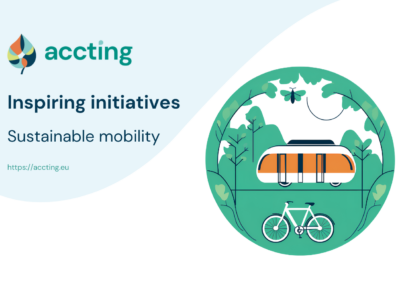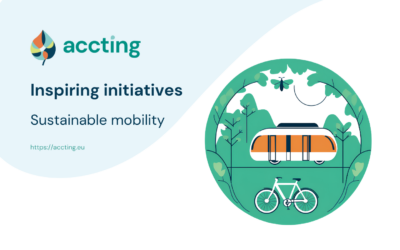ACCTING aims to understand the impact of Green Deal policies on vulnerable groups, prevent inequalities, and produce knowledge and innovations to advance behavioural change at individual and collective levels for an inclusive and equal European Green Deal. Read our report on all 693 mapped initiatives.
Local community is organizing to oppose a top-down imposed conservation area on Biševo (Croatia)
Spasimo Bišovo is a local citizens’ initiative from the remote island Biševo (Croatia) to oppose extractivist tourism and promote the low-impact tradition of the precarious island existence.
In recent years the nearby city and local authority have initiated a UNESCO sponsored programme of land use restrictions in the interest of biodiversity and specific geological formation protection. Spasimo Bišovo deems this programme a cover for extractivist tourism focused on a single attractive site on the island (the Blue Cave), and finds that it restricts all other forms of tourist and economic activity on the island. The initiative wishes to foster a broader understanding of the low-impact existence practiced on the island for centuries and to enable a broader visitor experience than a visit to a single geological wonder.
Delayed construction and public awareness
The initiative’s main actions have been directed at opposing the development of Visitor’s Centre planned as part of the tourist reception facilities for a brief visit to the Blue Cave. The main outcomes are a delay in the construction of the Blue Cave Visitor Centre and increased awareness about the island’s potential for a different tourism paradigm. Consequently, Spasimo Bišovo has abated an intensification of the Blue Cave visits and initiated broader debate about the understanding of remote islands and their integration into the Croatian national economy and society.
Vulnerability of low-income senior citizens
The island is a permanent residence of about 19 households, and the main producer of a local variety of red wine for the region. Low-income and senior citizen households who engage with the island’s biosphere in a traditional and ecologically low-impact way are particularly vulnerable. According to Spasimo Bišovo, a development plan that enhances their heritage and gives them local control over resources is more beneficial to them than being a backdrop for international extractivist tourism focused on brief visits to a target spot of exceptional beauty. Whilst the traditional residents of the island don’t claim a unique ethnicity, they do share a specific dialect and history, making a type of ‘ethnicity’ another vulnerability dimension.
More inspiring initiatives

A city on two wheels
In the heart of Sweden, the Uppsala Cycling Association (UCF) has been Read More

Transforming urban transport
Bicycle Łódź is a dynamic social initiative launched by the "Normal ... Read More



